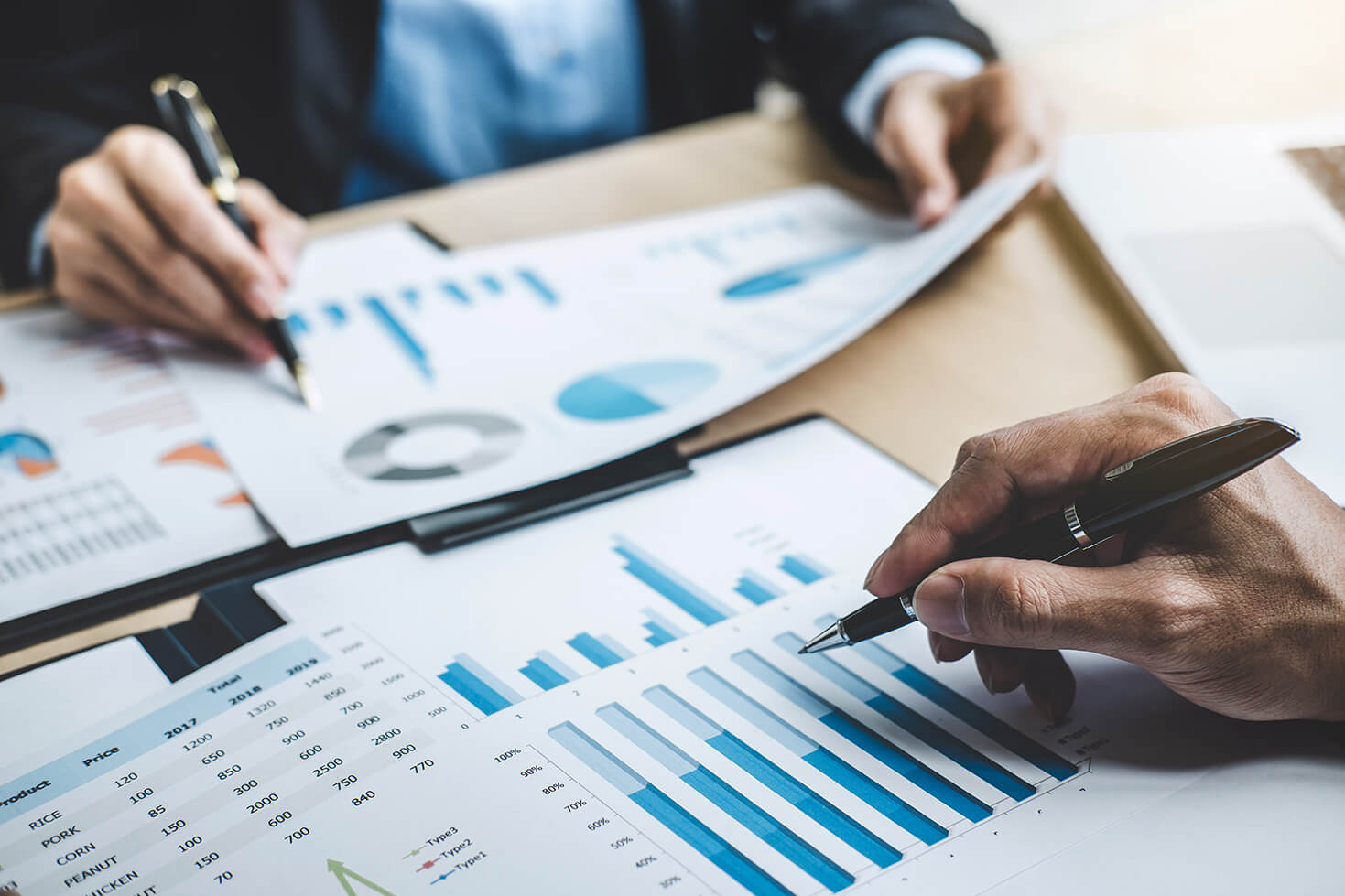Henrik Strabo is Rainier Investment Management’s Chief Investment Officer and International Small Cap Portfolio Manager. In this position, he is responsible for building and managing Rainier’s 10-year-old international small cap strategy.
A New Era for International Investing
Global markets and economies have operated amid an environment of increasing globalization for more than two decades. The relentless pursuit of scale and efficiency, looking not just at home but abroad, has resulted in lower costs for consumers and kept inflation under control. In-turn, this disinflationary pressure has enabled monetary policymakers to maintain artificially low interest rates, as well as allowed governments to spend freely. But all good things come at a cost.
Excess leverage, misaligned incentives, and poor regulatory oversight may have fueled the Global Financial Crisis (GFC), but it also showed how significantly global financial markets had become interconnected. Then, the COVID-19 pandemic demonstrated how much the developed world relied upon not just globalized financial markets, but globalized markets themselves. Supply chains were now spread across multiple continents, for both mundane and strategically important goods, exposing the fragility of these finely-tuned, just-in-time delivery channels. And even more recently, Russia’s invasion of Ukraine has forced a reevaluation of the viability and resiliency of national food and energy infrastructures and a re-examination of key strategic alliances and trading partners.
The developments of the past few years lead me to believe we may be at a point where both financial markets and global economies are entering a new phase, in which, if history is any guide, the main drivers and characteristics of the new cycle will be quite different than the last.
Whether informed by my decades of experience investing in global markets, or the confidence every investor must embrace to be successful, I am optimistic about the investment opportunities we see developing today, particularly in non-US markets. For now, I will focus primarily on the current environment and the three main headwinds that have influenced markets this year – China, War, and Inflation – as well as provide my thoughts on their investment implications.
For more on the attractiveness of the international small cap asset class, watch a replay of our webinar with Rainier’s CIO Henrik Strabo.
China
Any informed view on the global environment must consider the role of China. Prior to joining the World Trade Organization (WTO) at the end of 2001, China was the world’s sixth largest economy. The country has since grown at a nearly 14% compounded annual rate over the past 20 years, rising into the world's second-largest economy. Unprecedented economic growth does not, however, necessarily translate into superior investment returns. Investors would be wise to remember, that China’s economic system and form of government is unlike any other in the developed world.
As the recently concluded Communist Party Congress demonstrated, China’s leadership seeks to run the country under very tight controls. They are willing to wield their influence whenever it suits their interests, particularly regarding areas of strategic importance – such as health care, technology, and defense – or when doing so demonstrates the party’s power over the more capitalistic behavior of companies or individuals.
The Chinese equity market had a strong run leading up to the GFC, but ultimately crashed nearly 70% during the crisis, and over the past 10 years lags both the US and the rest of the developed world, with the MSCI China index currently trading about 60% below its all-time high.
From our perspective, this style of government makes it much more difficult for us to find and maintain attractive investment positions. A far greater “stroke of the pen” risk, combined with China’s tendency to favor larger state-owned or supported enterprises at the expense of smaller and potentially more innovative businesses, goes against our philosophy, criteria, and preferred style of investing.
We have found select investment opportunities in China in the past and retain the ability to invest in Chinese companies in the future, but we have no direct exposure today and do not anticipate any in the near-term.
From a broader perspective, the country’s sheer size, involvement in global supply chains, and influence across the geopolitical spectrum require deliberate attention and monitoring. General market and economic trends out of China have been negative for the past few years—in particular, the country’s significant demographic challenges as its working age population peaked in 2014 and total population is expected to start shrinking this decade—weighing on investor sentiment and returns. Moreover, tensions between China and Taiwan present an additional risk. As we monitor these longer-term trends, the expectation over the near-term is for China to relax its strict, zero tolerance COVID policy responses, potentially providing some near-term relief for global markets. In summary, a thorough understanding of China's role in the global economy is important for investors, but I don't believe we necessarily need Chinese companies in our portfolios to be successful for our clients.
Inflation
I could have easily titled this section interest rates or exchange rates as these three variables – inflation, interest rates, and currencies – are all inextricably linked. Just as economies enjoyed the deflationary benefits of globalization for over a decade, it’s now apparent that the huge fiscal and monetary responses to the pandemic, evolving consumer spending preferences, and subsequent energy crisis have each combined to concurrently reverberate through the entire global macroeconomy.
Central Bankers were late in responding to these inflationary pressures. They are now playing catch up by hiking rates at the fastest pace in over four decades years. Just as the US lead the ‘race to the bottom’ with zero percent interest rates and quantitative easing (QE) last cycle, it appears the US is intent on ‘racing to the top’ as well by hiking rates faster and more aggressively than other major central bank.
The impact of this has been two-fold, with both outcomes negative for investors. First, higher interest rates lower the valuation of all assets via the discounting mechanism, and some studies suggest the decline in equity prices this year is entirely attributable to this higher rates/lower valuations relationship. Second, higher US rates have propelled the US Dollar (USD) to 20-year highs, and the nearly 15% appreciation of the USD this year has negatively impacted foreign investment returns for USD-based investors.
As a result of these mechanisms, I believe investors have already incurred the negative consequences of higher rates even if the economic impacts have not yet materialized. With central banks much further along in their tightening campaign and with markets finally pricing in what appears to be a more realistic terminal level for policy rates,
For more on our views on peak inflation, see our letter From the Desk of our Fixed Income Director, Marc Bushallow, who earlier this year laid out the case for the coming deceleration of inflation.
Lastly, inflationary pressures will constrain the ability of fiscal and monetary authorities to respond to the next crisis or economic downturn with policies of the past. Instead, companies will be forced to innovate, create their own efficiencies, use more of their internal cash flows to fund R&D, and become more disciplined with their capital allocation. We think all of these things favor the breadth, depth, and diversity of international small cap companies, and we believe we have the team and processes in place to identify high quality, market dominant businesses that will succeed in this environment.
War
Any constructive resolution to the Russian-Ukraine crisis would certainly be a positive catalyst for markets. Since we are incapable of predicting the exact details or timing of such an outcome (and would be skeptical of anyone who professes to offer such assurances), we believe it is prudent for investors to remain invested in the face of this admittedly concerning geopolitical uncertainty.
Instead, we are focused on the secular investment opportunities that will emerge from the strategic repositioning of trade partnerships and energy infrastructure. This includes areas like renewables (e.g., solar, wind, hydro, etc.), liquid natural gas transport, and energy grid design, consulting, and maintenance services. Russia and China have also historically dominated the mining and refining capacity of what we call the ‘growth metals,’ such as lithium, nickel, cobalt, steel, copper, and rare earth elements. We see opportunities in these areas from companies operating in areas considered more friendly and reliable to the Western world, particularly as countries seek new sources and trading partners in these strategically important areas.
Echoing some of the points made in the previous sections, market leadership tends to rotate from one cycle to the next, and I believe we have the right experience, philosophy, process, and personnel to take advantage of these changing market regimes. Although our investment philosophy is centered on identifying growth companies, we are not overly dogmatic about or constrained by the types of companies, sectors, geographies, or valuation methodologies used to identify attractive investment opportunities.
Conclusion
To sum these thoughts into a consolidated overview: several headwinds all stacked up against our asset class and portfolio returns thus far in 2022, and investors are justifiably frustrated by the (lack of) returns in their portfolios. But as these issues get resolved, and the fundamental strength of smaller businesses to innovate and solve today’s challenges is rewarded by markets, I believe we are uniquely capable of finding the right mix of portfolio investments that will serve our investors well.
Request a custom report
To see how our strategy stacks up, our team can provide a comparison of our international small cap solution vs. the strategy you’re already using or considering.
Source: World Economic Forum.
This material contains the opinions of Manning & Napier Advisors, LLC, which are subject to change based on evolving market and economic conditions. This material has been distributed for informational purposes only and should not be considered as investment advice or a recommendation of any particular security, strategy, or investment product.



